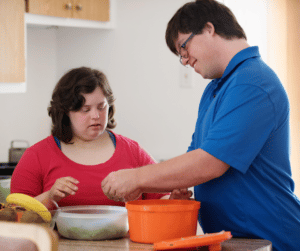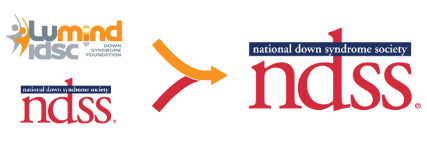July 1, 2021
Fleeing the nest or staying home? What happens when your loved one with Down syndrome becomes an adult? This is what many parents of children with Down syndrome wonder right as the graduation year inches closer. Experts recommend planning ahead of time, since each move may take time and consideration to be accomplished. Thanks to the wealth of information in myDSC we put together some valuable information that can help you start your planning what will be a life-changing move. 
IMPORTANT DOCUMENTS TO APPLY FOR:
Whether your soon-to-be adult loved one is applying for a job or simply opening a bank account, it is important to keep in mind that they will have to apply for important government documents. Some to keep in mind and start researching for are:
- State issued non-driver ID card or Driver’s License. Go to your local Department of Motor Vehicle’s website and you’ll find the list of documents you’ll need, fees, how long they are valid for and locations to apply in person.
- Social Security Card: check their official website for more information Social Security Number and Card | SSA
- Register to vote: voting is a fundamental right of American democracy. Read more on this document created by the National Down Syndrome Society
WHAT HAPPENS AFTER GRADUATION?
Jo Ann Simmons from the National Down Syndrome Society advocates a team approach to future planning. Put your minds together with your loved one, discuss options, and give them choices that suit their personality, skills, and goals. . For instance, some might attend four-year colleges, others might join a trade school or start working, some could choose to focus on hobbies or community work, and in some cases, they could become entrepreneurs and open their own businesses. Options may vary from community to community so explore what resources exist to make your loved one’s vision a reality.
Simmons also recommends thinking about the many ways your loved one’s strengths and skills can be translated into the real world. “This is not a test or assessment. It is an opportunity to see the skills your child has and what areas you may have overlooked.”
Experts refer to a “Transition Checklist” to help young people work on skills that may need more fine tuning before they are ready to embark on adult activities. Starting early is key as this will give you plenty of time to hone those skills. The “checklist” tasks range from remembering to shower daily, doing laundry, and learning to prepare simple meals, to taking unpaid internships and having after-school jobs that will help them build a resume.
 INCOME, HOUSING AND HEALTH INSURANCE:
INCOME, HOUSING AND HEALTH INSURANCE:
Income from family or government agencies are crucial elements when planning your loved one’s transition into independence. Some income sources are intricate and require extensive research and consultation with experts so just like with the other steps towards accomplishing your loved ones’ goal for independent living, start your due diligence with ample time.
- Wages
- SSI (Supplemental Security Income) this is designed to help people with various diagnoses who have little or no income. For more information and how to apply Supplemental Security Income (ssa.gov)
- Family contributions.
- Section 8 Housing choice vouchers: this is a federal government program that helps low-income families, the elderly and disabled to “afford decent, safe and sanitary housing” in the private market.
- Medicaid health insurance: because it is run by each individual state, eligibility might differ.
- Medicaid Waiver Programs: Each state has a variety of waivers designed to promote community living. The waivers are specific to each state.
- Medicare: this is a federal program that provides health insurance to individuals over the age of 65 of under 65 and disabled.
After spending time thinking about the financial and housing factors, it’s also important to think about the emotional ones. As Jo Ann Simmons puts it: “if you don’t teach your child to cross the street, he will never know what’s on the other side.”
For more in-depth resources about transitioning into adulthood and what happens after high school, join myDSC, it’s free!
